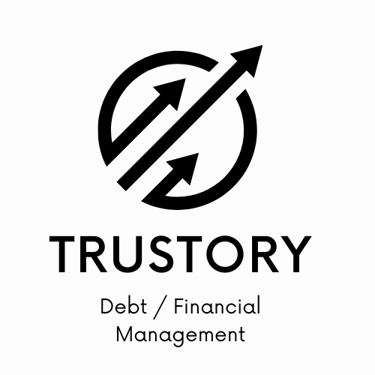Debt Counselling South Africa: A Practical Guide to Debt Review, Lower Instalments, and a Path to Investing with Trustory
Learn how debt counselling in South Africa works, reduce monthly instalments via debt review, and start investing your savings with Trustory (NCRDC4342).
Charlé Lombard
8/20/20257 min read


Introduction
If your debt repayments are squeezing your budget each month, you’re not alone. Debt counselling in South Africa offers a legal, structured way to reduce monthly instalments, protect you from creditor pressure, and regain control. At Trustory (NCR-registered, NCRDC4342) in Bloemfontein, we go a step further: once your instalments drop under debt review, we guide you to invest part of the savings so you can build long-term financial resilience. This guide explains how debt counselling works, who qualifies, how much you could save, timelines, and how Trustory’s invest-the-savings approach sets you up for a better future.
What You’ll Learn
Debt counselling in South Africa is a legal process under the National Credit Act that restructures your debt into an affordable plan and shields you from legal action.
Most clients see significantly reduced monthly instalments; at Trustory, we then help you direct some of that freed-up cash into simple, disciplined investment habits.
You’ll see what to expect at each stage, how fees and timelines work, and how to avoid common pitfalls.
What Is Debt Counselling in South Africa?
Answer box (featured snippet-ready): Debt counselling in South Africa is a formal, legal process under the National Credit Act (NCA) that restructures your unsecured debt into an affordable repayment plan. A registered debt counsellor negotiates with your creditors, typically reduces your monthly instalments, and obtains legal protection so you can repay debt without harassment or asset risk.
Key points
Governed by the NCA; overseen by the National Credit Regulator (NCR).
For consumers who are over-indebted or struggling to meet monthly payments.
You make one consolidated, reduced payment via an approved payment distribution agency (PDA).
On completion, you receive a clearance certificate.
Debt Counselling vs Debt Review: Are They the Same?
Yes. In everyday South African usage, “debt counselling” and “debt review” refer to the same NCR-governed process. Some firms use “debt review” to stress the assessment and court order steps; others use “debt counselling” to emphasise guidance and budgeting support.
Who Qualifies for Debt Counselling?
Answer-first: You likely qualify if you can’t meet current debt obligations, have steady income to afford a reduced repayment, and your debt counsellor confirms you are over-indebted under the NCA.
Eligibility checklist
You are a South African consumer with unsecured or mixed debts (e.g., credit cards, personal loans, retail accounts, vehicle finance, home loan).
You have a stable income (salary or verifiable source) to maintain the reduced, consolidated payment.
You agree to refrain from new credit during the process.
You’re not currently under sequestration or another legal arrangement that conflicts with debt review.
Signs You May Need Debt Counselling
More than 30–40% of your monthly income goes to debt repayments.
You pay late or skip payments to cover essentials.
You rely on credit to bridge from one payday to the next.
You’re receiving arrears notices or creditor calls.
How Debt Counselling Works: Step-by-Step (South Africa)
Answer-first: Expect 6 structured steps—assessment, notification, negotiation, court order, single reduced payment, and clearance.
HowTo steps
Assessment and affordability
Trustory reviews your income, expenses, and all credit agreements to determine over-indebtedness and set an affordable consolidated payment.
Legal notifications
We notify your creditors and credit bureaus that you’ve applied. This flags your profile to stop new credit while you are protected.
Negotiation with creditors
We negotiate reduced interest rates and extended terms with your credit providers to lower monthly instalments.
Court or tribunal order
A Magistrate’s Court or the National Consumer Tribunal confirms the restructured plan, giving you legal protection.
Single reduced payment
You pay one monthly instalment via a PDA, which distributes funds to all creditors per the plan.
Clearance certificate
After you complete the plan, you receive a clearance certificate; bureaus remove the debt review flag, and you return to normal credit status.
Timeline guide
Application to legal protection: usually weeks to a few months, depending on court schedules and creditor responses.
Total duration: often 36–60 months, depending on debt size, negotiated rates, and consistency of payments.
How Much Can Debt Counselling Reduce Your Monthly Instalments?
Answer-first: Many clients experience meaningful reductions when interest is cut and terms are extended. The exact figure depends on your debts, rates, and creditor cooperation.
Example scenario
Before: R7,800 total monthly debt repayments at high unsecured rates.
After negotiations: R5,000 consolidated payment under debt review.
Immediate cash-flow relief: R2,800 per month. Trustory encourages you to allocate part of this to an investment habit.
Note: Your outcome depends on your unique profile, creditor mix, and court approval. No firm can guarantee a specific reduction.
Trustory’s Advantage: Lower Instalments Today, Invest for Tomorrow
At Trustory, our mission is stability now and growth later.
What makes us different
Registered and local: Trustory is NCR-registered (NCRDC4342) and based in Bloemfontein, serving clients across South Africa.
Structured savings-to-investing: Once your monthly instalment is reduced, we help you earmark a portion of the freed-up cash into simple, compliant investment options suitable for your stage. This builds a buffer and grows wealth while you pay down debt.
Practical budgeting tools: We provide guidance and offer a budgeting book (available on Amazon) to help you track, plan, and stick to your goals.
Transparent guidance: Clear expectations on timelines, fees per NCR guidance, and progress updates.
Why “Invest While You Repay” Matters
Builds the saving habit early so it sticks after debt review.
Gives you resilience for unexpected expenses, reducing reliance on new credit.
Positions you to hit near-term goals (emergency fund) and long-term goals (home deposit, education).
Compliance note: We provide general information and budgeting guidance. Investment paths are discussed in principle and aligned to your risk tolerance and goals; we’ll refer or collaborate with licensed partners where regulated investment advice is required.
Costs and Fees: What to Expect Under the NCA
Answer-first: Fees are regulated and typically built into your reduced monthly instalment, not added on top.
What you’ll typically see
Once-off application and restructuring components aligned with NCR guidance.
A monthly aftercare component while you remain under debt review.
Legal application costs for court/NCT filings.
Payment distribution agency (PDA) fees included in your single instalment.
Transparency: Trustory explains fees upfront during your free assessment so you can see the all-in monthly amount and expected duration before you commit.
Common Questions About Debt Counselling (South Africa)
Will debt counselling affect my credit score?
Answer: During debt review, your credit profile is flagged to prevent new credit. As you pay consistently under the plan, your risk profile improves. After you complete the process and receive your clearance certificate, the review flag is removed. Many clients are better positioned for healthy credit use afterward.
Can I buy a car or a house during debt review?
Answer: Generally, no. The NCA framework restricts new credit while you are protected. Once you’re cleared, you can apply normally, and your improved debt-to-income position often helps.
How long does debt review take?
Answer: Many plans run 36–60 months. The duration depends on your debt size, negotiated interest rates, and consistency of payments.
What debts are included?
Answer: Unsecured debts (credit cards, personal loans, store cards) are typically included; secured debts (vehicle finance, home loans) can be included or maintained depending on affordability and strategy. We’ll assess your full situation to recommend the right approach.
What if my income changes?
Answer: Contact us immediately. If your circumstances improve or tighten, we can reassess affordability and, where possible, adjust the plan in line with legal and creditor requirements.
Debt Counselling vs Debt Consolidation vs Debt Management
Answer-first: Debt counselling is a legal protection and restructuring process; consolidation is a new loan that replaces multiple debts; debt management is budgeting and prioritization without legal protection.
Quick comparison
Legal protection: Debt Counselling = Yes; Consolidation Loan = No; Debt Management = No
New loan required: Debt Counselling = No; Consolidation = Yes; Debt Management = No
Typical term: Counselling 36–60 months; Consolidation varies; Management ongoing
Credit during process: Counselling = restricted; Consolidation = depends on affordability; Management = normal
Best for: Counselling = over-indebted, need protection; Consolidation = qualify for good-rate loan; Management = early-stage stress, no arrears
Local Insights: Debt Counselling in Bloemfontein and Across South Africa
Trustory serves clients nationwide, with a local base in Bloemfontein. Whether you’re in Bloemfontein, Johannesburg, Cape Town, Durban, Pretoria, Gqeberha, or Polokwane, the NCA framework applies consistently, but court timelines and creditor negotiation cadence can vary by region. We’ll brief you on typical expectations for your area and keep you updated throughout.
How Trustory Guides You from First Call to Clearance
Free assessment: Understand your full picture and affordability.
Personalized plan: We prioritize protecting essentials and setting an achievable monthly payment.
Legal protection: We manage notifications and court/NCT processes.
Payment simplicity: One reduced payment via PDA.
Invest-the-savings habit: As your cash flow improves, we help you set up a disciplined savings/investing routine suited to your stage.
Completion and rebuild: On clearance, we guide you in maintaining strong financial habits, credit hygiene, and continued investing.
Risks, Limitations, and How to Avoid Pitfalls
No new credit during review: Plan for essentials and small emergencies. Build a starter emergency fund early.
Consistency matters: Missing payments can jeopardize protection. Set debit order reminders and maintain communication.
Avoid unscrupulous operators: Always verify NCR registration (Trustory: NCRDC4342). Ask for a transparent fee explanation.
Be realistic on timelines: Faster isn’t always better; affordability and sustainability are key.
Realistic Outcomes: What Success Looks Like
Monthly relief: Lower instalments that stabilize your cash flow.
Fewer creditor calls and legal stress thanks to legal protection.
A growing emergency buffer and a steady investing habit.
A clearance certificate and a clear plan to rebuild credit and pursue bigger goals.
Getting Started with Trustory
Step 1: Book a free debt assessment on Trustory.me
Step 2: Share your income, expenses, and debt details securely.
Step 3: Review your personalized, reduced-payment plan and timeline.
Step 4: Begin your single instalment and start your invest-the-savings habit with our guidance.
Step 5: Check in quarterly to track progress and adjust your budget.
FAQ
Q: What is debt counselling in South Africa?
A: It is a legal process under the National Credit Act that restructures your debt into an affordable plan, reduces monthly instalments, and provides legal protection while you repay.
Q: How much can I save each month under debt review?
A: Savings vary by debt mix and negotiated rates. Many clients see significant reductions that improve cash flow; we’ll show you a proposed monthly amount after your assessment.
Q: How long does debt counselling take to complete?
A: Many plans run between 36 and 60 months, depending on your debt size, negotiated interest, and consistency of payments.
Q: Can I include my car or home loan?
A: Often yes—secured debts can be included or managed alongside the plan. We’ll advise based on affordability and risk.
Q: Is Trustory registered with the NCR?
A: Yes. Trustory is NCR-registered (NCRDC4342). Always verify registration before engaging any debt counselling service.
Q: What happens after I finish debt review?
A: You receive a clearance certificate, the review flag is removed from your credit profile, and we help you maintain your budgeting and investing habit to stay on track.
Ready to lower your monthly instalments and build toward your goals? Book a free assessment with Trustory today. As your NCR-registered debt counsellor in Bloemfontein (NCRDC4342), we’ll guide you through debt review—and help you invest part of your savings to strengthen your future.
Explore our professional services for your needs.
Contact
Articles
Admin@trustory.me
082 821 2911
© 2024. All rights reserved.
